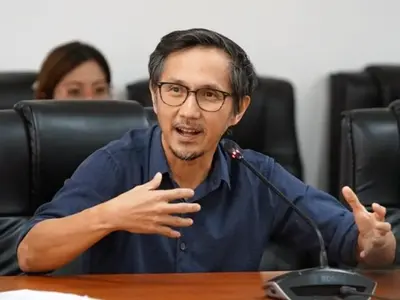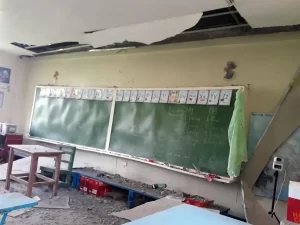
Lawyer Antonio Audie Z. Bucoy, spokesperson of the House of Representatives
THE Supreme Court has made it significantly more difficult to impeach high-ranking public officials by imposing additional, previously nonexistent requirements, effectively weakening one of the Constitution’s key mechanisms for accountability.
This was according to lawyer Antonio Audie Z. Bucoy, spokesperson of the House of Representatives’ prosecution panel in the impeachment case against Vice President Sara Duterte, who is facing allegations of misuse of P612.5 million in confidential funds, graft and corruption, bribery, betrayal of public trust and other high crimes.
In a press conference on Wednesday, Bucoy said the high court’s decision, which nullified the Articles of Impeachment against the Vice President, included rules not found in the Constitution and made the process needlessly and unjustifiably more complex.
“Sa nangyari po, sa desisyon ng Supreme Court at ito po ay ayon sa aming motion for [reconsideration], may mga isinusog na requirements na lalong nagpahirap sa impeachment. Dadaan ka ngayon sa butas ng karayom para mapanagot ang nagkasalang public official,” Bucoy explained when asked by a reporter.
According to Bucoy, the SC ruling goes against the plain language of the 1987 Constitution and could discourage legitimate efforts to hold powerful officials accountable.
“Ang impeachment po ay simple pero sagradong proseso. Ang ating Konstitusyon, ating Saligang Batas, hindi mo kailangan ng abogado para maintindihan nito. Plain language ‘yan. Napakasimple. Kahit ‘di abogado, maintindihan mo ‘yan,” Bucoy said.
He pointed out that among the new procedural burdens imposed by the SC is the requirement for the House to conduct collective deliberation or plenary debate before transmitting a complaint to the Senate.
Bucoy noted that the decision also requires all pieces of evidence to be attached to the complaint and distributed to every member of the House, a process not explicitly mandated by the Constitution.
He added that the ruling further imposes a standard of proof not found in the Charter.
Bucoy also raised concern over a vague and problematic rule introduced by the SC on what constitutes “reasonable time” for the impeachment process.
“Ang sabi ng Supreme Court sa decision, na we argued against na may kaukulang paggalang, ‘yung reasonable time. Hindi sinabi ng Supreme Court kung ano ang reasonable time. Ang sinabi lang sa decision, we can review reasonable time once you have done it,” he said.
“Sad to say, ‘yung accountability po nawalan ng ngipin kung susundin natin ang naging decision ng Supreme Court,” Bucoy added.
He emphasized that public office is a public trust, and making it excessively difficult to remove those who abuse that trust runs counter to the very foundation of democratic governance.
“Hindi po [katanggap-tanggap] kasi public office is a public trust. Number one ‘yan na prinsipyo. Hindi prebilehiyo na umupo ka diyan. Kaya nga they are servants of the people,” he said, referring to impeachable officials.
“Kayo ang nangangalaga ng interes ng sambayanan. Pinagkatiwala sa inyo ang kapakanan ng buong bansa. ‘Pag ito ay trinaydor mo, dapat managot ka,” he stressed.
Bucoy underscored that impeachment is not designed to protect powerful individuals, but to safeguard the broader public interest.
“‘Yan ang purpose ng impeachment — to protect the body politic, not to protect the impeachable officer. It is to protect the body politic, ang sambayanan,” he said.
He also highlighted a fundamental democratic principle: that in any conflict between private and public interest, the people’s interest must always prevail.
“Merong doktrina na if there is an incongruent interest, ibig sabihin hindi pagkakapantay ng interes ng isang tao kontra sa interes ng sambayanan, the interest of the people should tilt. It should tilt in favor of the interest of the people,” Bucoy said.
“Dapat bigyan ng kaukulang pagpapatibay ‘yung interes ng sambayanan, hindi ‘yung isang tao,” he pointed out.
The House has filed a motion for reconsideration urging the Supreme Court to reverse its decision, arguing, among other points, that it violated the Constitution’s exclusive grant of power to the House to initiate impeachment proceedings.



